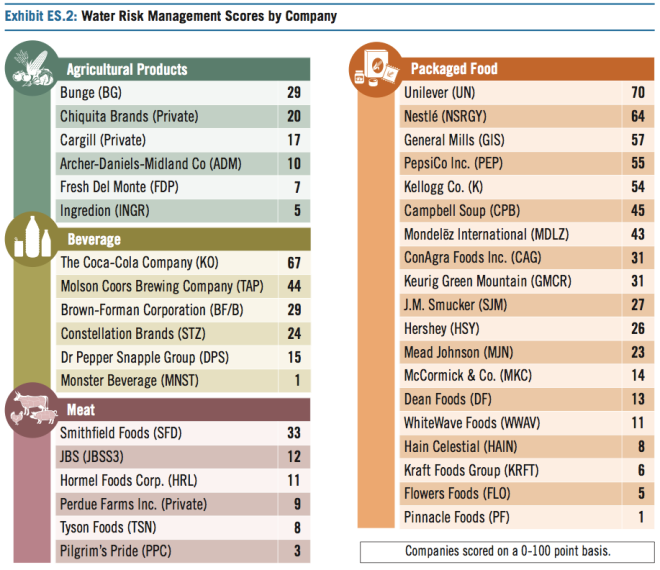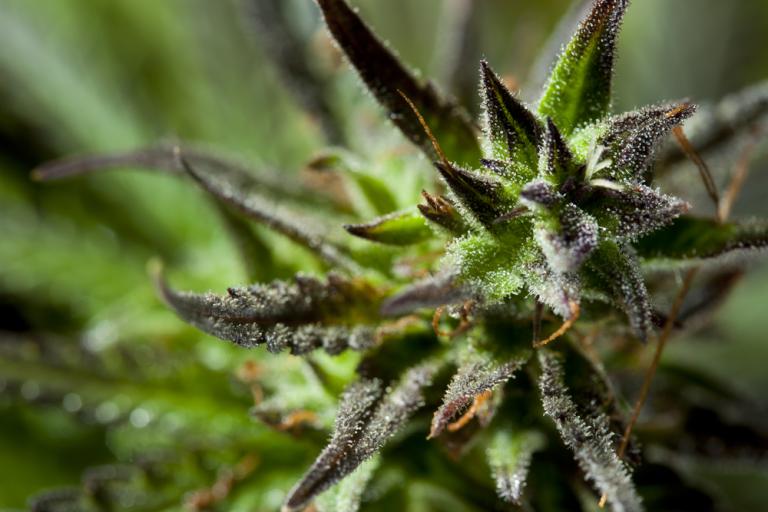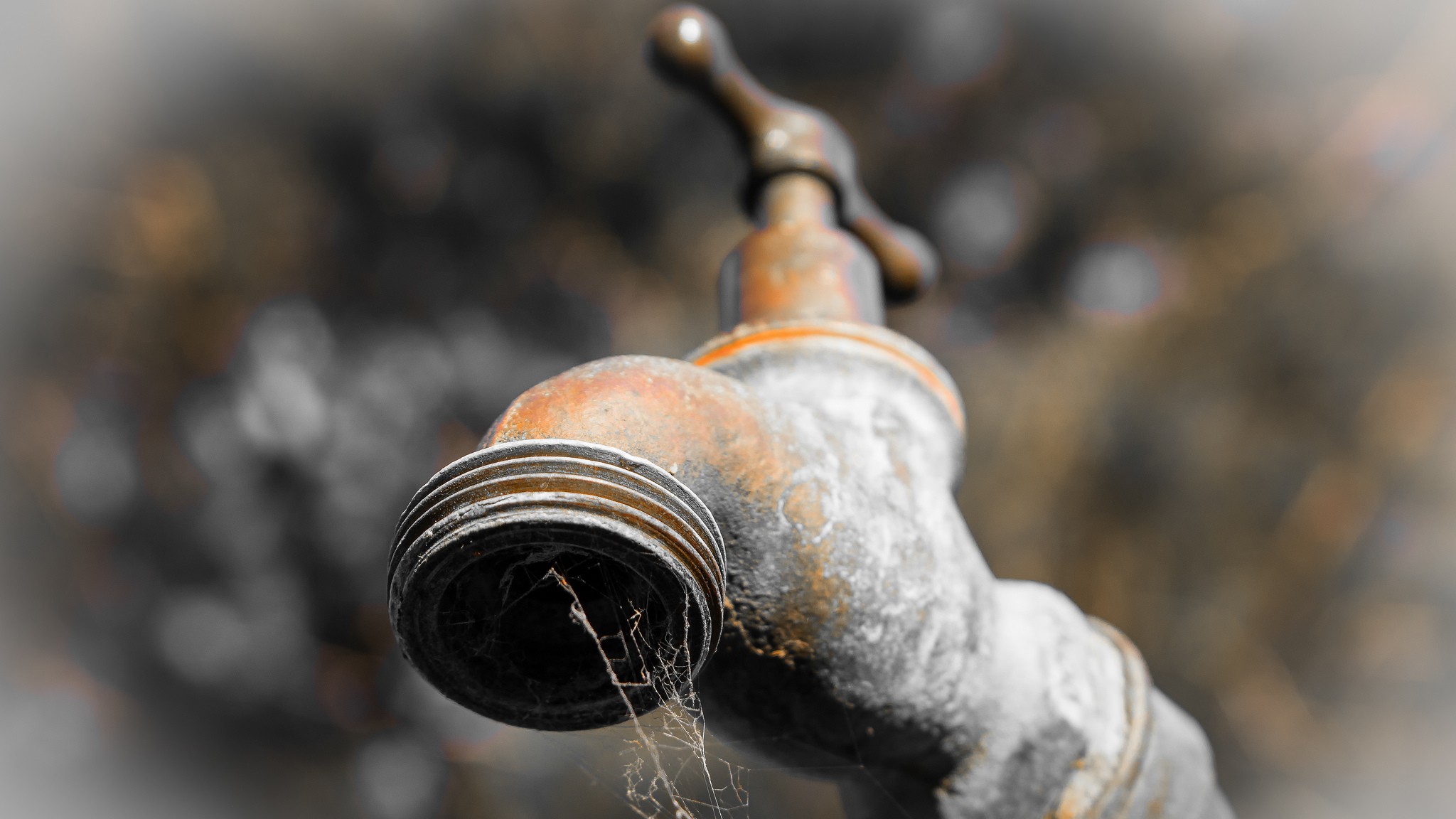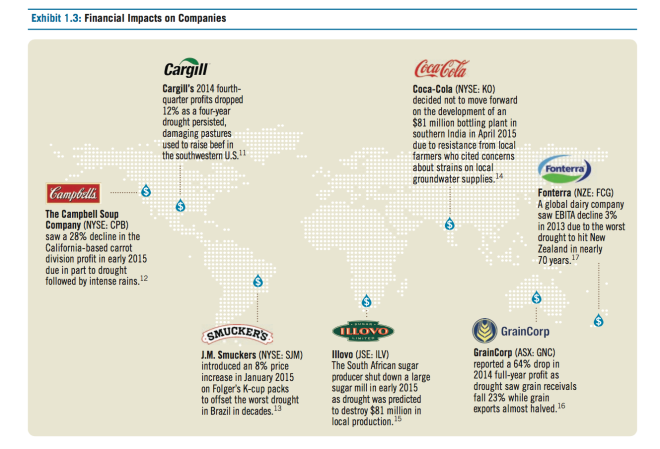Many food companies are vulnerable to the risks of water scarcity and water pollution, according to a new report from Ceres, a green business advocacy group.
Growing and processing food requires a lot of water — more than any other industry. The Ceres report makes the case that climate change and population growth are jeopardizing water supplies in some places, and many of the companies that depend on a steady flow of water haven’t assessed how these risks could affect their bottom lines or properly prepared for them.
Ceres is recommending that investors look closely at company policies when choosing where to put their money. The report also suggests that companies could reduce their exposure to water scarcity by becoming a force for positive change in the watersheds where they operate: Companies could protect themselves by helping the farmers that they work with to reduce water use and pollution. Ceres also suggests companies should be lobbying governments to “implement more sustainable water management policies.”
It’s not all bad news. The report also offers examples of companies that have instituted policies worth replicating. For instance:
A handful of companies (five) in the packaged food and beverage industries — Coca-Cola, Campbell, Kellogg, Molson and Nestlé — have imposed water management expectations on their manufacturing suppliers. Molson Coors expects suppliers to quantify water consumption and demonstrate how they will seek to reduce this over time.
And nearly half of the companies Ceres analyzed are already working with farmers by providing training to help them protect water resources. Unilever and PepsiCo have education programs for farmers.
Eleven companies reported funding external programs and projects to help advance water sustainability by farmers in their supply chains. Mondelez, for example, is funding NGOs that provide tools and training to cocoa growers to strengthen agricultural management practices — including limiting fertilizer and pesticide use and protecting water resources.
A few companies provide financial incentives to reduce their water use.
Ceres assigned these companies scores based on best practices:

Interestingly, there’s a lot of variation, and some of the “natural foods” companies that I’d expect to pay more attention to water use — like WhiteWave (Horizon Organic Milk, Earthbound Farms) and Hain Celestial (Earth’s Best Organic, Imagine Foods) — ended up low on the list.
It’s also interesting to see the ways in which water-associated risks are already hurting food companies. Ceres put together this map:
The world’s weather shifts are only going to create more business uncertainty. Investors already look askance at companies that rely on water but fail to ensure that it’s kept clean and used efficiently. And if we could actually get companies to care about their own interests in the long run, rather than just over the next quarter, I suspect they’d begin pushing forcefully for government action to slow climate change.




